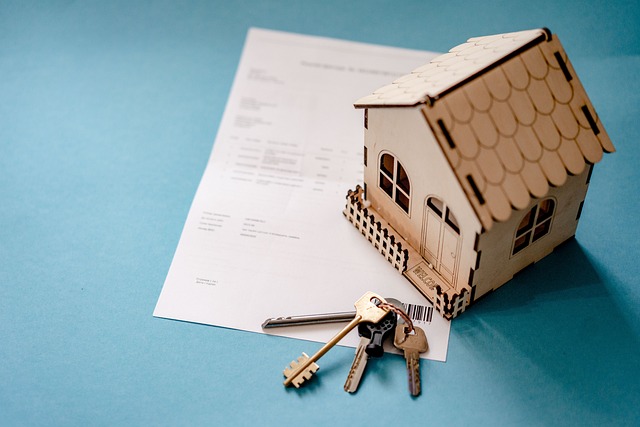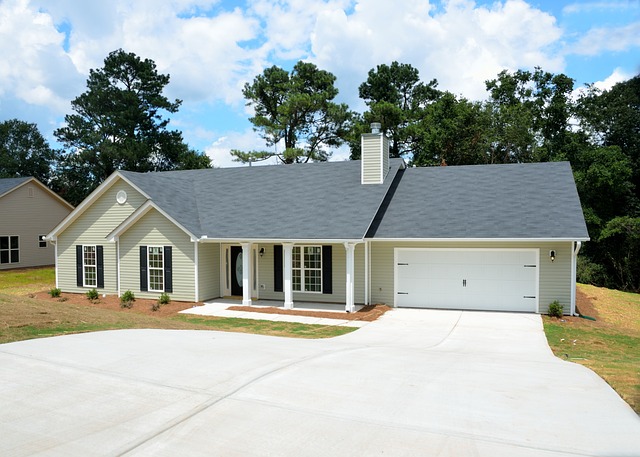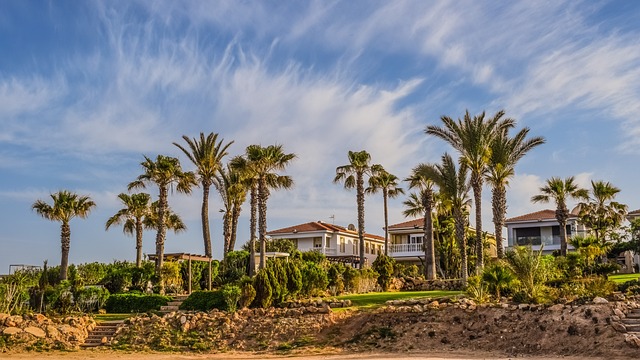At the five-year mark, Executive Condo (EC) owners have several important considerations and decisions to make. They can choose to extend their lease for another 99 years or opt for redevelopment through collective sale, which can offer financial gains and introduce updated amenities. After ten years, owners may apply to purchase the state's share of the land, making their EC a fully private property. As the EC reaches this decade milestone, the opportunity for an en bloc sale arises, allowing owners to potentially upgrade or realize significant capital gains, though this process requires careful planning and consensus among unit owners. Additionally, post-five years, the resale and rental markets become increasingly relevant, offering EC residents alternative exit strategies and reflecting the property's value in the broader real estate landscape of Singapore. Understanding these dynamics is crucial for EC owners to make informed decisions that align with their long-term financial and residential goals.
Considering the unique status of an Executive Condominium (EC) as it transitions through its lifecycle, homeowners often ponder the implications of ownership beyond the initial five-year mark. This article delves into the transformative journey of ECs over a decade, exploring the nuances from resale opportunities and financial shifts to value appreciation trends and the pivotal decisions faced at the ten-year milestone. Whether you’re a current EC resident or contemplating an investment, understanding the evolving landscape post-five years is crucial for making informed choices about your living or rental arrangements, and for navigating the complex legal and financial considerations that come with this unique property type. Join us as we chart the path of an EC after 10 years, highlighting key aspects such as the lease buyback scheme eligibility, market dynamics, and the options available to secure your property’s future.
- Understanding the Executive Condominium (EC) Tenure: A Overview
- The Five-Year Mark: Seller's Market and Resale Opportunities for ECs
- Financing and Ownership Transition Beyond the Fifth Year
- Property Value Appreciation Trends for ECs After Five Years
- Lease Buyback Scheme Eligibility for Mature ECs
- Renewal or Redevelopment: Deciding the Future of Your EC After a Decade
- The Role of Resale and Rental Markets in Post-Five Year EC Dynamics
- Navigating the Legal and Financial Considerations at the Ten-Year Milestone
Understanding the Executive Condominium (EC) Tenure: A Overview

An Executive Condominium (EC) in Singapore is a hybrid of both public and private housing, designed to offer a subsidy for first-time homeowners while still providing the benefits and facilities of a condo. After 5 years of occupancy, the flat within an EC enjoys the same rights as a resale flat, allowing owners to sell their flats on the open market without the earlier restrictions. As the EC matures beyond this initial period, it transitions through its tenure phases. After 10 years, the original five-yearMinistry of Finance (MOF) loan has been fully repaid, and the property ceases to be subsidized by grants for first-time buyers. At this point, ECs function like regular condominiums, with owners able to lease their units for as long as they wish without any penalties, a feature that distinguishes it from HDB flats. Owners can also choose to upgrade their flats to private property status after satisfying certain criteria, such as living in the flat for a minimum of 5 consecutive years from the date they acquired the EC, and the flat must be at least 10 years old. This process involves applying to the Housing & Development Board (HDB) for the upgrade, which upon approval, converts the EC into a private condominium, removing the original limitation on leasing the property.
The Five-Year Mark: Seller's Market and Resale Opportunities for ECs

At the five-year mark, Executive Condominiums (ECs) in Singapore often transition into a seller’s market, presenting lucrative resale opportunities for owners looking to capitalize on their investment. During this period, the initial lease devaluation has typically plateaued, and the property may appreciate in value as it becomes eligible for en-bloc sales or privatization if a sufficient percentage of unit owners agree to the process. The resale market for ECs becomes particularly vibrant after five years as original buyers who met the MOP (Minimum Occupation Period) can sell their units without penalty, and the property’s value may have increased, making it an attractive proposition for both upgraders and investors. The five-year milestone is a significant point for EC owners to consider if they aim to maximize their returns or downsize their living spaces, as demand often outstrips supply in this segment of the market, especially in sought-after locations or developments with desirable features. As such, the Executive Condo After 5 Years can be a strategic asset for those looking to make the most of their property investment in Singapore’s dynamic real estate landscape.
Financing and Ownership Transition Beyond the Fifth Year

During the first five years of an Executive Condominium (EC) ownership, residents enjoy the benefits of public housing while having the potential for appreciation similar to private property. However, beyond the fifth anniversary of an EC, its status undergoes a significant transformation. As the property ages, financing options may evolve, reflecting both the maturing market and changes in regulatory frameworks. Owners who have fulfilled their minimum occupation period can apply to deregister their EC, converting it into a private condominium. This transition often opens up a broader range of financial products tailored to the private property market, potentially offering more competitive loan-to-value (LTV) ratios and mortgage terms. The deregistration process also paves the way for subsequent ownership transitions, such as inheritance or sale, without the initial restrictions that apply to ECs. As the EC enters its second decade, owners must navigate these new financial landscapes and consider the implications of owning a privatized property. The transition from an EC to a private condominium beyond the fifth year is a pivotal moment for property owners, offering both opportunities and challenges in terms of financing and ownership rights.
Property Value Appreciation Trends for ECs After Five Years

Over a span of five years, Executive Condominiums (ECs) in Singapore have historically demonstrated a trend of value appreciation that is competitive with both private condominiums and public housing. This growth can be attributed to several factors, including their unique position as a hybrid between HDB flats and private property. As ECs transition from the initial lease period to the latter part, they often experience an uptick in desirability due to maturing infrastructure and the completion of nearby amenities. The proximity to established towns and cities, coupled with the enhancements in connectivity through public transport, further enhances their appeal.
In the first five years post-completion, ECs have shown a consistent appreciation trend, with values often rising at a rate that outpaces initial price expectations. This upward trajectory is not solely due to market conditions but also reflects the evolving needs and preferences of homeowners. The transition from the initial phase of living in an EC, where residents typically prioritize affordability and convenience, to a later stage where capital appreciation and resale value become more important, is a key driver for this trend. As such, investors and owners who hold onto their ECs for at least five years have historically seen tangible gains in property value, making the EC After 5 Years a potentially lucrative asset within the Singapore real estate market.
Lease Buyback Scheme Eligibility for Mature ECs

After fulfilling the minimum occupation period of five years, an Executive Condominium (EC) unit may become eligible for the Lease Buyback Scheme (LBS), a housing option designed to assist older homeowners in downsizing. This scheme allows owners of ECs who are Singaporeans and have reached the age of 55 to sub-lease their remaining lease to the Housing & Development Board (HDB) and receive a lump-sum payment. The amount offered is contingent on the valuation of the lease portion that the owner intends to part with, typically ranging from 10 to 30 years, depending on the owner’s preference and eligibility. This arrangement can be particularly attractive for those looking to unlock equity from their property without having to relocate from their current residence. The LBS not only provides financial flexibility but also offers a convenient solution for owners who wish to release capital tied up in their property while continuing to reside in their EC for the remainder of their lease. It’s important for EC owners to be aware of the scheme’s criteria and to consider it as part of their long-term housing plans, especially considering the evolution of ECs from public to private housing over the years. The eligibility for such schemes can change over time, so staying informed is crucial for those nearing the 5-year mark after acquiring an EC.
Renewal or Redevelopment: Deciding the Future of Your EC After a Decade

After a decade, an Executive Condominium (EC) reaches a pivotal juncture in its lifecycle. The initial lease term of 99 years means that from the fifth year onwards, owners must consider the condo’s renewal or potential redevelopment. As an EC transitions into its second phase post-fifth anniversary, the Management Corporation Strata Title (MCST) plays a crucial role in decision-making processes. The collective effort of residents is essential as they must vote on the future trajectory of their living space. Renewal involves extending the lease for another 99 years, a process that can be undertaken twice, up to a maximum of 300 years in total. Redevelopment, on the other hand, involves the collective sale of the EC, followed by its demolition and replacement with new structures. Both options have their merits and considerations, hinging on factors such as the age of the current buildings, the condition of the facilities, market trends, and the preferences of the residents.
Owners of an EC after 5 years must assess the property’s value and the community’s needs. A successful renewal can refresh the living experience, aligning it with modern standards while retaining the sense of community. Conversely, redevelopment offers the opportunity to capitalize on the property’s value, providing residents with profits from the sale and new residents with contemporary amenities. The decision is a significant one, influencing not just the immediate future but also the long-term prospects of the EC as a desirable residence. It necessitates careful consideration, strategic planning, and a unified approach among residents to ensure a harmonious outcome that aligns with their collective aspirations for years to come.
The Role of Resale and Rental Markets in Post-Five Year EC Dynamics

After five years, an Executive Condo (EC) reaches a pivotal juncture in its lifecycle, where its market dynamics begin to shift significantly. At this point, the resale and rental markets play crucial roles in shaping the EC’s trajectory. These secondary markets offer existing owners alternative exit strategies beyond the standard five-year window when they can sell the unit back to Singaporeans or return their flat to the Housing & Development Board (HDB) under the Selective En Bloc Redevelopment Scheme (SERS). The resale market for ECs after year five becomes a vital avenue for owners looking to capitalize on property appreciation or for those who wish to remain in their homes beyond the initial lease term. This market reflects the condition and desirability of the EC, influenced by factors such as location, age of the unit, and the maintenance efforts of past and current residents.
Similarly, the rental market for ECs after five years can be a barometer of the property’s ongoing appeal. Landlords looking to tap into this market must consider the evolving preferences of tenants, competition from other housing types, and the economic landscape. The rental yield from an EC post-five years can be attractive to investors, especially as these properties often offer larger living spaces compared to private condominiums at a more competitive price point. The dynamics of the resale and rental markets thus contribute to the ongoing value proposition of Executive Condos, making them a dynamic and adaptable housing option for both owners and renters alike.
Navigating the Legal and Financial Considerations at the Ten-Year Milestone

When an Executive Condo (EC) reaches its five-year mark, both legal and financial considerations come into sharp focus for its owners. From the onset of the fifth year, owners are eligible to apply to the Singaporean government for the right to privatize their EC, a process that involves purchasing the state’s share in the land on which the development sits. This application is subject to approval, hinging on factors such as the maturity of the housing loan and the owner’s status as a Singapore citizen or permanent resident.
Upon reaching the decade-long milestone, the EC’s en bloc sale becomes an attractive option for owners looking to recoup their investments or upgrade their living spaces. The market conditions at this juncture play a pivotal role in determining the viability of such a sale. Owners must engage with real estate professionals to navigate the complexities of collective sales, which include obtaining the mandatory 80% consensus from unit owners and complying with the Singapore Land Authority’s guidelines for en bloc sales. Financially, this process can be lucrative but also involves careful planning, as proceeds are typically disbursed after deducting outstanding loan amounts, legal fees, and other related expenses. The timing of an en bloc sale is crucial, as it depends on market sentiment, the state of the property market, and the collective decision-making process among unit owners.
